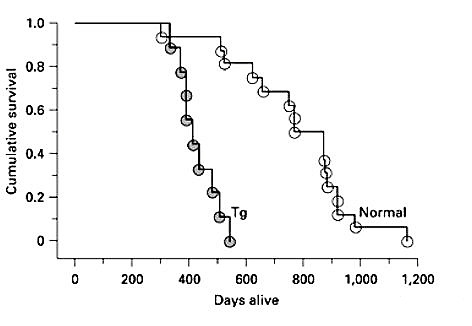Il GH/IGF-1 diminuisce fisiologicamente con l'età e questi cambiamenti sono accompagnati da affaticamento, atrofia muscolare, aumento del tessuto adiposo e deterioramento cognitivo negli anziani...
Nel 1990, Rudman pubblicò un articolo sul New England Journal of Medicine che sconvolse la comunità medica: "L'uso dell'ormone della crescita umano nelle persone di età superiore ai 60 anni". Rudman selezionò 12 uomini di età compresa tra 61 e 81 anni per le sperimentazioni cliniche:
Dopo 6 mesi di iniezione di hGH, i soggetti hanno avuto un aumento medio dell'8,8% nella massa muscolare, del 14,4% nella perdita di grasso, del 7,11% nell'ispessimento della pelle, dell'1,6% nella densità ossea, del 19% nel fegato e del 17% nella milza rispetto al gruppo di controllo di altri anziani della stessa età. %, si è concluso che i cambiamenti istologici in tutti i soggetti erano da 10 a 20 anni più giovani.
Questa conclusione ha portato alla diffusa promozione dell'ormone della crescita umano ricombinante (rhGH) come farmaco anti-invecchiamento, ed è anche la causa principale della convinzione di molti che l'iniezione di rhGH possa avere un effetto anti-invecchiamento. Da allora, molti medici hanno utilizzato l'hGH come farmaco anti-invecchiamento, sebbene non approvato dalla FDA.
Tuttavia, man mano che la ricerca continua ad approfondirsi, gli scienziati hanno scoperto che i piccoli benefici per l'organismo derivanti dall'aumento dell'attività dell'asse GH/IGF-1 non prolungano effettivamente la durata della vita degli anziani, ma anzi comportano dei rischi per la salute:
I topi che secernono eccessivamente GH sono enormi, ma hanno una durata di vita inferiore del 30%-40% rispetto ai topi selvatici [2] e nei topi con livelli elevati di GH si verificano cambiamenti istopatologici (glomerulosclerosi e proliferazione degli epatociti). grandi) e resistenza all'insulina.
Livelli elevati di GH stimolano la crescita di muscoli, ossa e organi interni, causando gigantismo (nei bambini) e acromegalia (negli adulti). Gli adulti con eccesso di GH sono spesso associati a diabete e problemi cardiaci, nonché a un rischio maggiore di cancro.
Data di pubblicazione: 22-07-2022


